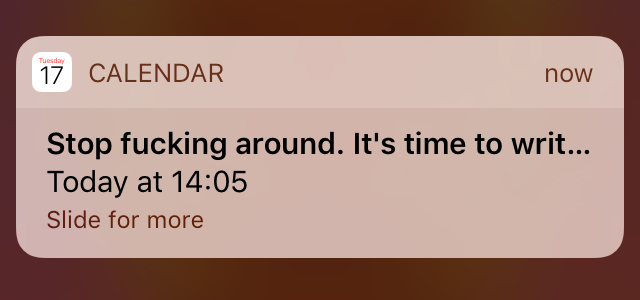Friends, family, and readers often ask me what made me decide to do what I do now. And to be honest, I wish I could give people a straightforward answer.
But I don’t have an explanation for how I found my calling, passion, meaning, or whatever you want to call it.
The closest I got was: Just try a lot of things, step outside of your comfort zone, and see what happens.
It’s an honest answer. I’m never afraid to say “I don’t know,” when people ask me a question. I think people often feel the urge to give an answer when someone asks them a question.
That’s one of the reasons there’s so much bullshit in the world. People feel like they will look stupid, so they make up the weirdest stuff. We have this innate need to talk, even when we should shut up.
William Faulkner said it best:
“Talk, talk, talk: the utter and heartbreaking stupidity of words.”
What’s wrong with “I don’t know?”
We don’t want to look bad. Also, we like to please others. For the person who’s asking you a question, an “I don’t know,” answer is not sufficient.
I have been there many times. When I worked for a corporation, the favorite word of managers was, “why?”
Why did you do this? Why do you do that? Those questions often come up when people make a mistake or something goes wrong.
Uhm, I don’t know?
Sometimes things just happen. Why is that not good enough? We’re only human — we don’t have answers to everything. Why is that not good enough?
Take scientists. We look at them as magical beings who should explain everything. But if you take a closer look, you see that there are many questions unanswered.
It’s not that we don’t care — it’s often the opposite. For example, I’d love to know everything about the universe.
For example: Is the universe finite or infinite? If it’s finite, how can you look beyond something you can’t see? It’s not like we can just hop on a spaceship and go to the edge of the universe.
Or take psychology. You could ask: What’s the formula to happiness?
Good luck with finding a one-size-fits-all solution.
You see, how can you answer those questions? And in daily life it’s exactly the same—there are also many things that remain unanswered.
- Why did you get angry?
- Why did you pick a certain industry?
- Why did you decide to move?
- Why did you forget to send the email?
I Don’t know?
I think a few lines from Ernest Hemingway’s book A Farewell To Arms express this concept very well.
The following is a conversation between the protagonist Frederic Henry, an American working as an ambulance driver for the Italian army during WWI.
He meets an English nurse called Catherine Barkley, and their very first encounter goes like this:
‘How do you do?’ Miss Barkley said, ‘You’re not an Italian, are you?’
‘Oh, no.’
‘What an odd thing — to be in the Italian army.’
‘Not really in the army. It’s only the ambulance.’
‘It’s very odd though. Why did you do it?’
‘I don’t know,’ I said. ‘There isn’t always an explanation for everything.’
‘Oh, isn’t there? I was brought up to think there was.’
‘That’s awfully nice.’
That’s why I love Hemingway (read his books if you haven’t). Most of us have it engraved in our heads that there always should be an explanation for everything. In our life, work, relationships, career, etc.
If you keep looking for an explanation for everything, you will only find frustration.
I’m not talking about curiosity because that’s a good thing. No, I’m talking about the obsession with things that don’t matter if you know the answer or not.
“So, what should we do?”
How about accepting that we don’t have the answers to everything?
And that’s harder than it sounds. You know why? We’re all control freaks, and we all hate insecurity. Even people who say they’re risk-takers.
Instead of always questioning everything, even stuff that doesn’t matter, just put your head down and do something.
Instead of trying to rationalize everything, just follow your gut, heart, feeling, etc.
Because, whether you question it or not, without action, there’s no outcome at all: So you might as well act instead of ask.















